Enhanced Guidelines for Child Care Programs
Child Care programs must take extraordinary precautions beyond what is normally recommended to prevent the spread of the COVID-19 virus. You can reduce their risk for getting and spreading viral respiratory infections, including by encouraging them to take these critical steps. These include:
- Mandating social distancing and keeping children in small groups (no more than 10 children clustered in an activity): absolutely no large group activities.
- Instructing staff to monitor for symptoms, and stay home if they are sick.
- Instructing parents/guardians to keep children home if they or any member of the household exhibits symptoms.
- Mandating frequent hand washing with soap and water for at least 20 seconds, especially after going to the bathroom, before eating, and after blowing one’s nose. Teachers should help young children do the same. If hands are visibly dirty, use soap and water to clean hands.
- Providing children with soap and water to wash hands; adults may use an alcohol-based hand sanitizer with at least 60% alcohol, but this is very toxic to children.
- Advising persons to avoid touching their face (especially eyes, nose, and mouth with unwashed hands).
- Increasing the early childhood program’s cleaning and disinfection routine to multiple times per day, while being careful with children in the near vicinity. Emphasizing cleaning and disinfecting frequently touched objects and surfaces.
- Covering coughs or sneezes with a tissue, then throwing the tissue in the trash and cleaning hands with soap and water or hand sanitizer (if soap and water are not readily available).
- Providing adequate supplies for good hygiene, including clean and functional handwashing stations, soap, paper towels, and alcohol‐based hand sanitizer.
- Restricting field trips.
- Restricting outside visitors and volunteers
Cleaning and Disinfecting Procedures
Special processes beyond routine cleaning are not necessary nor recommended to slow the spread of respiratory illness. Programs should follow standard procedures for cleaning as recommended below by the Environmental Protection Agency (EPA). Typically, this means daily sanitizing surfaces and objects that are touched often, such as bathrooms, water coolers, desks, countertops, doorknobs, computer keyboards, hands‐on learning items, faucet handles, phones and toys.
Disinfecting is the responsibility of program staff. They are trained to use disinfectants in a safe and effective manner and to clean up potentially infectious materials and body fluid spills – blood, vomit, feces, and urine.
Clean the surface first to remove all organic matter. Custodial staff should follow the disinfectant manufacturer’s instructions for use including:
- Using the proper concentration of disinfectant
- Allowing the required wet contact time
- Paying close attention to hazard warnings and instructions for using personal protective items such as gloves and eye protection
- Using disinfectants in a sufficiently ventilated space
Resources
- Centers for Disease Control and Prevention (CDC) most up-to-date information regarding Novel Coronavirus (COVID-19)
- CDC Checklist for Parents and Teachers
- Resources from the Division of Early Childhood
- Environmental Cleaning and Disinfection Recommendations
- EPA’s Registered Antimicrobial Products for Use against Novel Coronavirus SARS-CoV-2, the Cause of COVID-19
- CDC Print Resources
- CDC Videos
- Maryland Department of Health - Coronavirus Disease 2019 (COVID-19) Information

